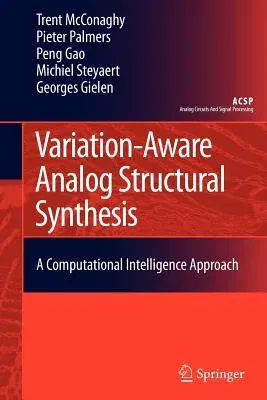This book describes new tools for front end analog designers, starting
with global variation-aware sizing, and extending to novel
variation-aware topology design. The tools aid design through
automation, but more importantly, they also aid designer insight through
automation. We now describe four design tasks, each more general than
the previous, and how this book contributes design aids and insight aids
to each. The ?rst designer task targeted is global robust sizing. This
task is supported by a design tool that does automated, globally
reliable, variation-aware s- ing (SANGRIA), and an insight-aiding tool
that extracts designer-interpretable whitebox models that relate sizings
to circuit performance (CAFFEINE). SANGRIA searches on several levels of
problem dif?culty simultaneously, from lower cheap-to-evaluate
"exploration" layers to higher full-evaluation "exploitation" layers
(structural homotopy). SANGRIAmakes maximal use of circuit simulations
by performing scalable data mining on simulation results to choose new
candidate designs. CAFFEINE accomplishes its task by tre- ing function
induction as a tree-search problem. It constrains its tree search space
via a canonical-functional-form grammar, and searches the space with
grammatically constrained genetic programming. The second designer task
is topology selection/topology design. Topology selection tools must
consider a broad variety of topologies such that an app- priate topology
is selected, must easily adapt to new semiconductor process nodes, and
readily incorporate new topologies. Topology design tools must allow
designers to creatively explore new topology ideas as rapidly as
possible.


